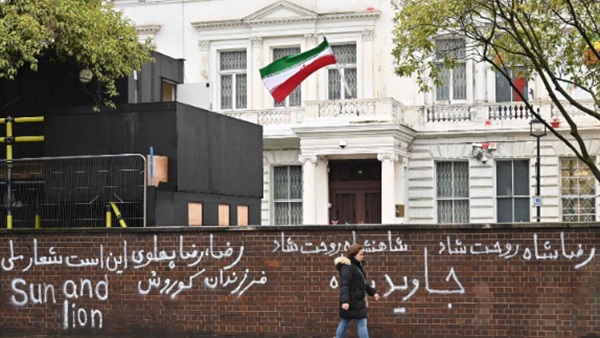Execution casts doubt on British support for Iran nuclear deal

Doubts have been raised over Britain’s support for the Iran
nuclear deal after the execution of a British-Iranian dual citizen.
Alireza Akbari, a former deputy defence minister of Iran,
was hanged on Saturday after the regime convicted him of spying for MI6, a
charge he denied.
Yesterday Andy Slaughter, Akbari’s former MP, said he did
not think the Foreign Office had done enough to try to save him. The killing,
believed by the Foreign Office to be the first time that a dual citizen has
been executed by Iran since the 1980s, provoked condemnation around the world.
James Cleverly, the foreign secretary, has announced
measures in response, including sanctions against Mohammad Jafar Montazeri,
Iran’s prosecutor-general, and summoning Seyed Mehdi Hosseini Matin, the chargé
d’affaires who is the country’s most senior diplomat in Britain, to Whitehall.
Alicia Kearns, Tory chairwoman of the foreign affairs select
committee, said that the nuclear deal, the Joint Comprehensive Plan of Action,
clearly “hasn’t worked”.
Reports yesterday suggested that Britain is reconsidering
its support for the deal. Kearns said: “The deal hasn’t worked in that I don’t
think it’s significantly stopped Iran pursuing its nuclear ambitions. What
they’re trying to do now is work out how to put a nuclear weapon into their
weapons system and deploy it. I suspect the government is reappraising
everything [relating to Iran]. I imagine it’s not just the nuclear deal
specifically.”
Ministers are planning to declare Iran’s Islamic
Revolutionary Guard Corps a terrorist organisation and ban it in Britain. The
Labour Party said yesterday it would support the move.
It is understood that Akbari’s family, who were called to
Evin prison in Tehran last week for a final visit, had not wanted his case to
be raised formally by the UK government until it became clear that legal routes
were exhausted.
Slaughter, the Labour MP for Hammersmith, said he had to
write to the Foreign Office five times in February and March last year before
he got a reply. “I don’t feel they did enough,” he said. “I don’t know whether
it would have made any difference, but I certainly felt frustrated, and I think
the family [did] as well.”
The Foreign Office said that “consular officials made
contact with Alireza Akbari’s family as soon as we received Mr Slaughter’s
correspondence in February 2022. We have been in regular contact with the
family since then to provide them with consular support.”





